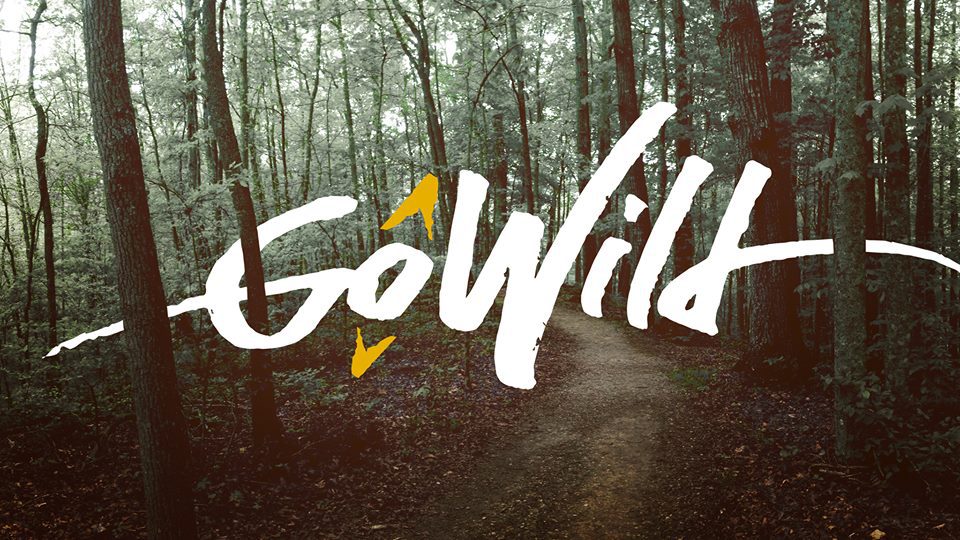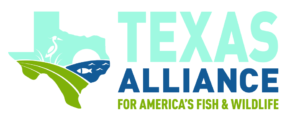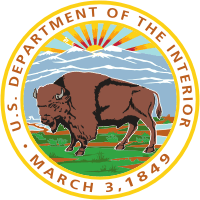 Houston Safari Club Foundation has long had a mission of preserving the sport of hunting through education, conservation and the promotion of our hunting heritage. As times have changed and there is a need for new generations of hunters, the organization realizes it’s also equally important to recruit new people into the lifestyle. The nonprofit is joining GoWild to do just that. GoWild is a digital community of outdoors enthusiasts supporting education, interaction and activity in the outdoors. Together, the two aim to activate current hunters to participate in conservation efforts beyond hunting, and to provide tools and resources for newcomers to pick up hunting for the first time.
Houston Safari Club Foundation has long had a mission of preserving the sport of hunting through education, conservation and the promotion of our hunting heritage. As times have changed and there is a need for new generations of hunters, the organization realizes it’s also equally important to recruit new people into the lifestyle. The nonprofit is joining GoWild to do just that. GoWild is a digital community of outdoors enthusiasts supporting education, interaction and activity in the outdoors. Together, the two aim to activate current hunters to participate in conservation efforts beyond hunting, and to provide tools and resources for newcomers to pick up hunting for the first time.
Author: HoustonSafari
 Houston Safari Club Foundation has long had a mission of preserving the sport of hunting through education, conservation and the promotion of our hunting heritage. As times have changed and there is a need for new generations of hunters, the organization realizes it’s also equally important to recruit new people into the lifestyle.
Houston Safari Club Foundation has long had a mission of preserving the sport of hunting through education, conservation and the promotion of our hunting heritage. As times have changed and there is a need for new generations of hunters, the organization realizes it’s also equally important to recruit new people into the lifestyle.
The nonprofit is joining GoWild to do just that. GoWild is a digital community of outdoors enthusiasts supporting education, interaction and activity in the outdoors. Together, the two aim to activate current hunters to participate in conservation efforts beyond hunting, and to provide tools and resources for newcomers to pick up hunting for the first time.
“The marketing and communications landscape is ever-changing and rapidly evolving. This change applies to the outdoor enthusiast as much as any other group,” said Joe Betar, Executive Director, Houston Safari Club Foundation. “GoWild and its podcast, Restless Native, allow us to tell our story and educate others on the importance of hunting as a conservation tool.”
GoWild sees Houston Safari Club Foundation as an organization that isn’t just tying its brand to conservation—it’s acting.
“This is an organization that’s gone beyond promoting conservation as an ideal—they’re putting millions of dollars into making a difference,” said Brad Luttrell, the CEO and Co-Founder of GoWild. “They’ve provided $3.5 million in hunter-funded programs for habitat and wildlife improvements, anti-poaching and outdoor education. They’ve put $2.1 million into scholarships for hunters. These are our future difference makers.”
GoWild and Houston Safari Club Foundation have an expansive conservation effort to be announced later in July. The goal of the partnership is to activate hunters as conservationists beyond license purchases and funds gathered through taxes.
“As we get more Millennials into hunting, we have to remember this is the experience generation,” said Luttrell. “They want to participate, and while they have money, they are most motivated by creating memories and meaningful experiences. We’re going to meet them with a challenge that gives that effort meaning and a lasting legacy.”
To learn more about Houston Safari Club Foundation, visit hscfdn.org. To learn more about GoWild, visit timetogowild.com.
Recovering America’s Wildlife Act Update
The Recovering America’s Wildlife Act now has 53 co-sponsors (22 Republicans and 31 Democrats). This includes two Texans, Beto O’Rourke of El Paso and Gene Green of Houston.
YOU can help get more Texas co-sponsors!
Check out our online toolkit for speaking points and a sample letter to your Member of Congress. Then go to your U.S. Representative’s website and urge him or her to co-sponsor H.R.4647, the Recovering America’s Wildlife Act.
The Recovering America’s Wildlife Act would mean more than $63 million annually to our over 1,300 Texas species at risk of becoming endangered.
This landmark legislation is good for wildlife, good for business, and good for Texans. Please email or call your Representative today.

Date: May 21, 2018
Contact: Interior_Press@ios.
Secretary Zinke Proposes Expansion of Hunting and Fishing Opportunities at 30 of America’s National Wildlife Refuges
PLEASE NOTE: The Fish & Wildlife Service will seek comments from the public on the proposed rule for 30 days, beginning with publication in the Federal Register in coming days. The notice will be available at www.regulations.gov, docket no. FWS-HQ-NWRS-2018-0020, and will include details on how to submit your comments. An interim copy of the proposed rule is now available at https://www.fws.gov/home/
WASHINGTON – Continuing his efforts to increase access to public lands, U.S. Secretary of the Interior Ryan Zinke today announced a proposal to open more than 248,000 acres to new or expanded hunting and fishing opportunities at 30 national wildlife refuges.
Opportunities include places like Hackmatack National Wildlife Refuge in Illinois and Wisconsin, and deer hunting in Philadelphia at John Heinz National Wildlife Refuge being proposed for the first time. The proposal also outlines expanded hunting and fishing opportunities at 136 national wildlife refuges. If finalized, this would bring the number of units of the National Wildlife Refuge System where the public may hunt to 377, and the number where fishing would be permitted to 312.
“As stewards of our public lands, Interior is committed to opening access wherever possible for hunting and fishing so that more families have the opportunity to pass down this American heritage,” Secretary Zinke said. “These 30 refuges will provide incredible opportunities for American sportsmen and women across the country to access the land and connect with wildlife.”
The U.S. Fish and Wildlife Service’s (Service) proposal would open more new acres to hunting and fishing than in the past and takes steps to simplify regulations to more closely match state hunting and fishing regulations. The changes would be implemented in time for the upcoming 2018-2019 hunting seasons.
Hunting, fishing and other outdoor activities contributed more than $156 billion in economic activity in communities across the United States in 2016 according to the Service’s National Survey of Fishing, Hunting and Wildlife-Associated Recreation, published every five years. More than 101 million Americans – 40 percent of the U.S. population 16 and older – pursue wildlife-related recreation, such as hunting, fishing and birding.
“Ensuring public lands are open for multiple uses supports local economies and provides important opportunities for recreation. Further, this proposal means that families and individuals across our nation will be better able to participate in our nation’s tradition of hunting and fishing. We appreciate Secretary Zinke and the Interior Department for advancing this priority, and we will continue to work to improve access to public lands for our sportsmen,” said Senator John Hoeven.
“Public lands should be open for the public to enjoy,” said Chairman Rob Bishop of Utah. “The Department of the Interior’s latest decision to expand acreage and access for hunting and fishing on wildlife refuges was the right move. Secretary Zinke’s decision will help our economy grow and enable those who hunt and fish to spend more time catching game and less time caught in red tape.”
“North Dakota is a sportsman’s paradise. The decision to expand access to public lands by opening more than 248,000 acres across the nation to hunting and fishing will provide new economic opportunities for local communities as well as open up new areas for anglers and hunters,” said Congressman Kevin Cramer. “For the first time, the J. Clark Salyer and Lostwood National Wildlife Refuges will be open to moose hunting. I commend the Secretary’s decision and look forward to working with the department.”
“Hunters, anglers and shooting sports enthusiasts play a crucial role in funding the management and conservation of North America’s wildlife,” said Service Principal Deputy Director Greg Sheehan. “We are providing sportsmen and women with more access to our national wildlife refuges and streamlining regulations to more closely align with our state partners. And that’s good news for our customers.”
The Service manages hunting and fishing programs to ensure sustainable wildlife populations while also offering other traditional wildlife-dependent recreation on public lands, such as wildlife watching and photography. The Refuge System is an unparalleled network of 566 national wildlife refuges and 38 wetland management districts. There is a national wildlife refuge within an hour’s drive of most major metropolitan areas.
“The proposed expansion of hunting and fishing opportunities through working partnership with the states is a demonstration of Secretary Zinke’s commitment to our nation’s outdoor heritage and the conservation community,” said Virgil Moore, President of the Association of the Fish and Wildlife Agencies and Director of the Idaho Department of Fish and Game. “These efforts reaffirm the tremendous value of quality wildlife habitat and outdoor recreational opportunities, including hunting and fishing, in connecting millions of Americans to the outdoors.”
“We applaud Secretary Zinke and the Fish and Wildlife Service for their continued commitment to increasing opportunities for hunting and fishing within the National Wildlife Refuge System,” said Congressional Sportsmen’s Foundation President Jeff Crane. “We look forward to continuing to work with the Department of Interior on increasing access for sportsmen and women.”
Hunting and/or fishing will expand or be opened on the following refuges:
Arkansas
- Felsenthal National Wildlife Refuge: Expand existing migratory game bird, upland game and big game hunting.
California
- San Pablo Bay National Wildlife Refuge: Expand existing migratory game bird hunting, and open sport fishing for the first time.
Florida
- Lake Woodruff National Wildlife Refuge: Open wild turkey hunting for the first time.
Illinois
- Cypress Creek National Wildlife Refuge: Expand existing migratory game bird, upland game and big game hunting.
Illinois and Missouri
- Great River National Wildlife Refuge: Expand existing migratory game bird, upland game and big game hunting.
Illinois and Wisconsin
- Hackmatack National Wildlife Refuge: Open migratory game bird, upland game and big game hunting to all legal species in the State of Illinois.
Indiana
- Patoka River National Wildlife Refuge: Expand existing migratory game bird, upland game, big game hunting and sport fishing
Maine
- Moosehorn National Wildlife Refuge: Expand existing migratory game bird, upland game and big game hunting.
- Rachel Carson National Wildlife Refuge: Expand existing white-tailed deer and wild turkey hunting.
Maine and New Hampshire
- Umbagog National Wildlife Refuge: Open wild turkey hunting for the first time, and expand existing migratory game bird, upland game and big game hunting.
Maryland
- Blackwater National Wildlife Refuge: Expand existing migratory game bird and big game hunting.
- Patuxent Research Refuge: Expand existing white-tailed deer and wild turkey hunting.
Michigan
- Shiawassee National Wildlife Refuge: Open hunting of certain migratory bird, small game, and furbearers, and expand existing migratory game bird and big game hunting.
Minnesota
- Glacial Ridge National Wildlife Refuge: Open certain gamebird and small mammal hunting for the first time, and expand existing migratory game bird, upland game and big game hunting.
Montana
- Charles M. Russell National Wildlife Refuge: Expand existing big game hunting.
- Swan River National Wildlife Refuge: Open big game hunting for the first time.
New Jersey
- Edwin B. Forsythe National Wildlife Refuge: Open wild turkey and squirrel hunting for the first time, and expand existing migratory game bird and big game hunting.
New Jersey and New York
- Wallkill River National Wildlife Refuge: Expand existing migratory game bird hunting and sport fishing.
New Mexico
- Sevilleta National Wildlife Refuge: Open Eurasian-collared dove and Gambel’s quail hunting, and expand existing migratory game bird hunting.
North Dakota
- J. Clark Salyer National Wildlife Refuge: Open moose hunting for the first time.
- Lostwood National Wildlife Refuge: Open moose hunting for the first time.
Ohio
- Cedar Point National Wildlife Refuge: Open white-tailed deer hunting for the first time.
- Ottawa National Wildlife Refuge: Open hunting of certain gamebirds, small mammals and furbearers for the first time, and expand existing migratory game bird and big game hunting.
Oregon
- Cold Springs National Wildlife Refuge: Expand existing migratory game bird, upland game and big game hunting.
- Upper Klamath National Wildlife Refuge: Expand existing migratory game bird hunting.
- William L. Finley National Wildlife Refuge: Expand existing sport fishing.
Pennsylvania
- Cherry Valley National Wildlife Refuge: Expand existing migratory game bird, upland game and big game hunting.
- John Heinz National Wildlife Refuge at Tinicum: Open white-tailed deer hunting for the first time.
Utah
- Bear River Migratory Bird Refuge: Expand existing migratory game bird and upland game hunting.
Wisconsin
- Trempealeau National Wildlife Refuge: Open hunting of certain gamebirds, small mammals and furbearers for the first time, and expand existing migratory game bird and big game hunting.
The Service will seek comments from the public on the proposed rule for 30 days, beginning with publication in the Federal Register in coming days. The notice will be available at www.regulations.gov, docket no. FWS-HQ-NWRS-2018-0020, and will include details on how to submit your comments. An interim copy of the proposed rule is now available at https://www.fws.gov/home/
More than 53 million Americans visit refuges every year. National wildlife refuges provide vital habitat for thousands of species and access to world-class recreation, from fishing, hunting and boating to nature watching, photography and environmental education. In doing so, they support regional economies to the tune of $2.4 billion dollars per year and support more than 35,000 jobs.
Under the National Wildlife Refuge System Improvement Act of 1997, the Service permits hunting and fishing along with four other types of wildlife-dependent recreation, including wildlife photography, environmental education, wildlife observation and interpretation, when they are compatible with an individual refuge’s purpose and mission. Hunting, within specified limits, is currently permitted on 337 wildlife refuges and 37 wetland management districts. Fishing is currently permitted on 277 wildlife refuges and 34 wetland management districts.
###
The HSCF Youth Program is in immediate need of volunteers dedicated to preserving the future of hunting.
- To help coordinate and chaperone hunting and fishing trips.
- To coordinate and implement the Youth Wildlife Conservation Experience (YWCE) event at our annual Convention.
Houston, TX (May 10, 2018) – Houston Safari Club (HSC) continues its support of Sportsmen’s Alliance Foundation through a grant of $15,000 to support their incredible efforts to defend hunting, fishing and trapping against lawsuits, legislation and ballot issues initiated by animal rights and anti-hunting organizations.
For 40 years, the Sportsmen’s Alliance Foundation has been able to achieve a 95% success rate of defeating anti-hunting led initiatives. Unfortunately, the number of new anti-hunting initiatives is increasing and the only way they can meet those challenges is with increased funding from supporters like HSC. “We’re extremely grateful that the Board and members of the Houston Safari Club continue to demonstrate the importance of fighting to protect our heritage,” said Evan Heusinkveld, Sportsmen’s Alliance Foundation president and CEO. “It’s through the commitment of organizations like HSC that we’re able to engage in battles all across the country.”
Strengthening the partnership between Sportsmen’s Alliance Foundation and HSCF will help ensure the future of our nation’s outdoor heritage. Funding provided will be used to advance the Sportsmen’s Alliance Foundation mission of protecting and advancing sportsmen’s rights by supporting their actions across the breadth of the outdoor community.
“HSCF firmly supports the efforts of the Sportsmen’s Alliance Foundation to protect wildlife and hunting and support education, legal defense and research in the best interest of the hunting populace,” states Joe Betar, HSCF Executive Director.
About the Sportsmen’s Alliance
The Sportsmen’s Alliance protects and defends America’s wildlife conservation programs and the pursuits – hunting, fishing and trapping – that generate the money to pay for them. Sportsmen’s Alliance Foundation is responsible for public education, legal defense and research. Its mission is accomplished through several distinct programs coordinated to provide the most complete defense possible. Stay connected to Sportsmen’s Alliance: Online, Facebook, Twitter and Instagram.
About Houston Safari Club Foundation (HSCF)
Houston Safari Club Foundation (HSCF) is a non-profit organization, exempt from federal income tax, under section 501(c)(3) of the United States Internal Revenue Code. The charitable deduction for contributions to HSCF is the cash amount of the contribution, less the value of goods and services received, to the extent permitted by law. HSCF EIN 74-2177975. Please contact your tax advisor concerning deductibility of any payments as business deductions. HSCF is an independent organization, is not affiliated with Safari Club International (SCI) or its affiliates and is not a chapter or affiliate of any other organization.
####

